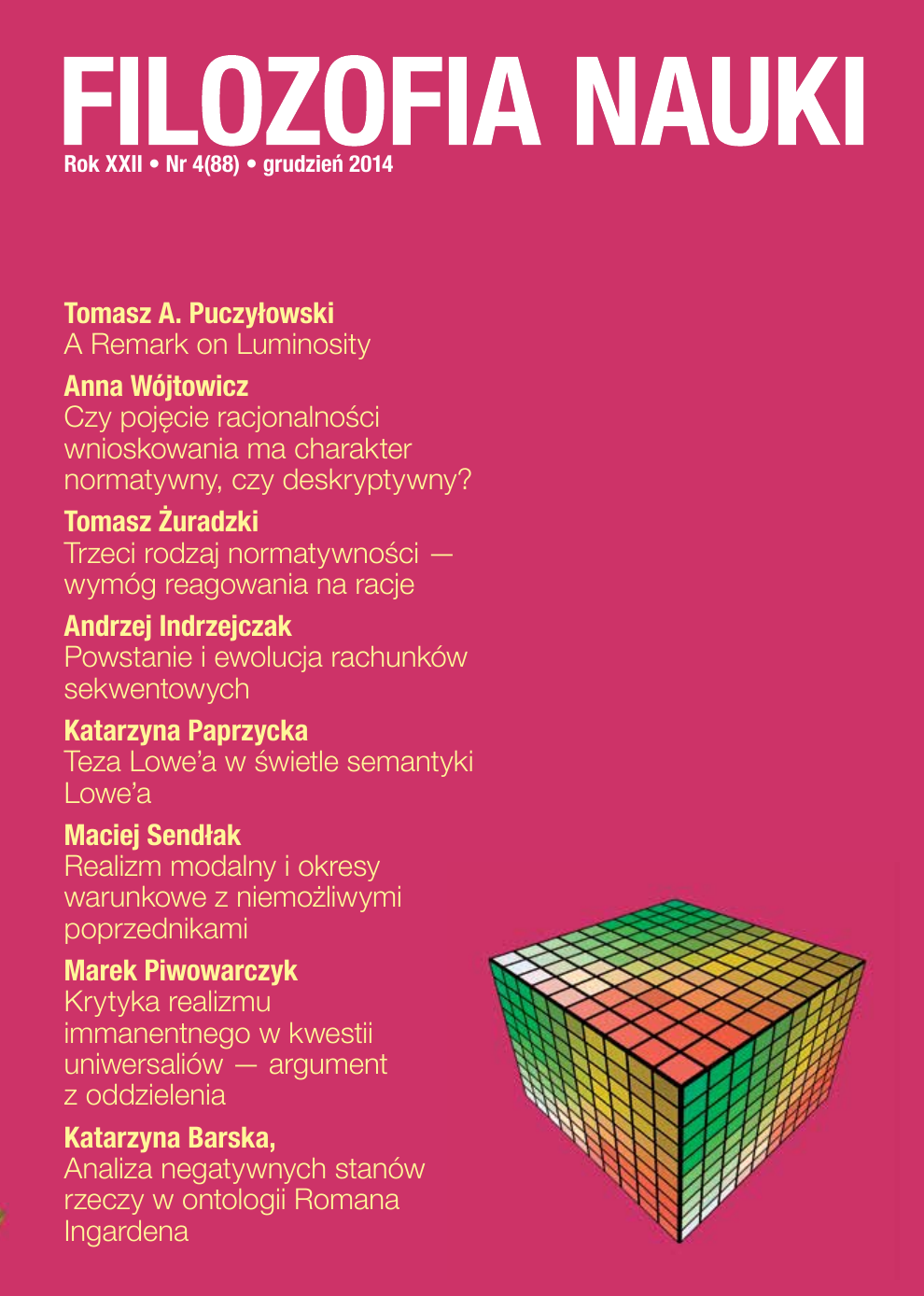Modal Realism and Counterpossibles
Keywords:
modal realism, counterfactuals, counterpossibles, possible worlds, impossible worlds, David Lewis, Takashi Yagisawa, Francesco BertoAbstract
According to the standard analysis of conditionals, any counterfactual with an impossible antecedent (so-called counterpossibles) is vacuously true. The way we use this kind of counterfactuals shows that it should not be so: some of them are regarded as true, and others as false. To solve the problem of counterpossibles, many philosophers have argued that one needs to invoke impossible worlds. This extension of the ontology of modality should save the analysis of counterfactuals from being insensitive to the problem of counterpossibles. Since theories of impossible worlds are extensions of original accounts of modalities, it is worth stressing that a proper analysis of counterpossibles should not weaken the latter. In this paper I argue that the theories of impossible worlds which are based on Lewis’ modal realism — Extended Modal Realism and Hybrid Modal Realism — might be considered as either unattractive to modal realists or insufficient for analyzing counterpossibles.Downloads
Published
2014-12-01
How to Cite
Sendłak, M. (2014). Modal Realism and Counterpossibles. The Philosophy of Science, 22(4), 91–107. Retrieved from https://fn.uw.edu.pl/index.php/fn/article/view/775
Issue
Section
Articles















 Filozofia Nauki/The Philosophy of Science | ISSN 1230-6894 | e-ISSN 2657-5868
Filozofia Nauki/The Philosophy of Science | ISSN 1230-6894 | e-ISSN 2657-5868